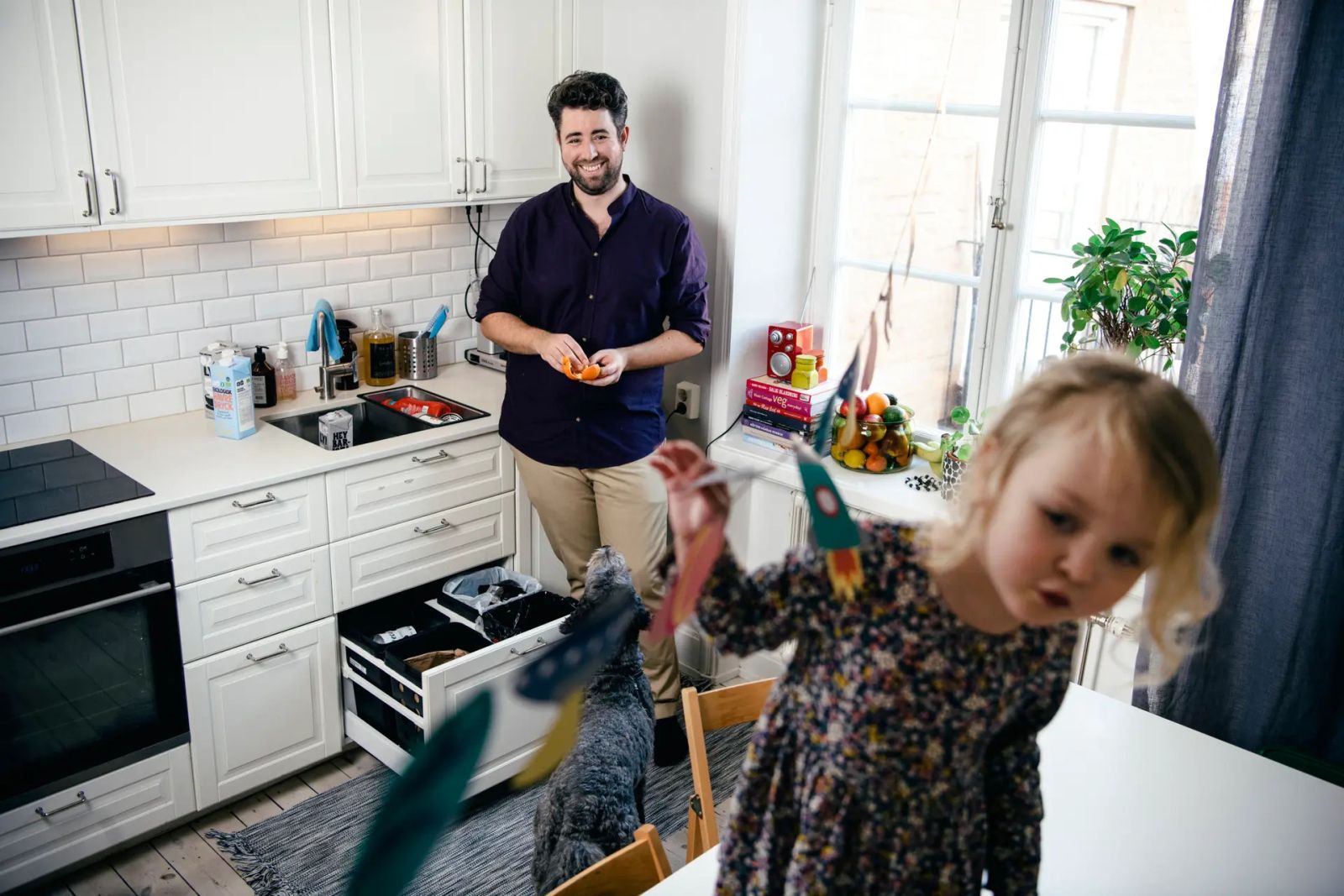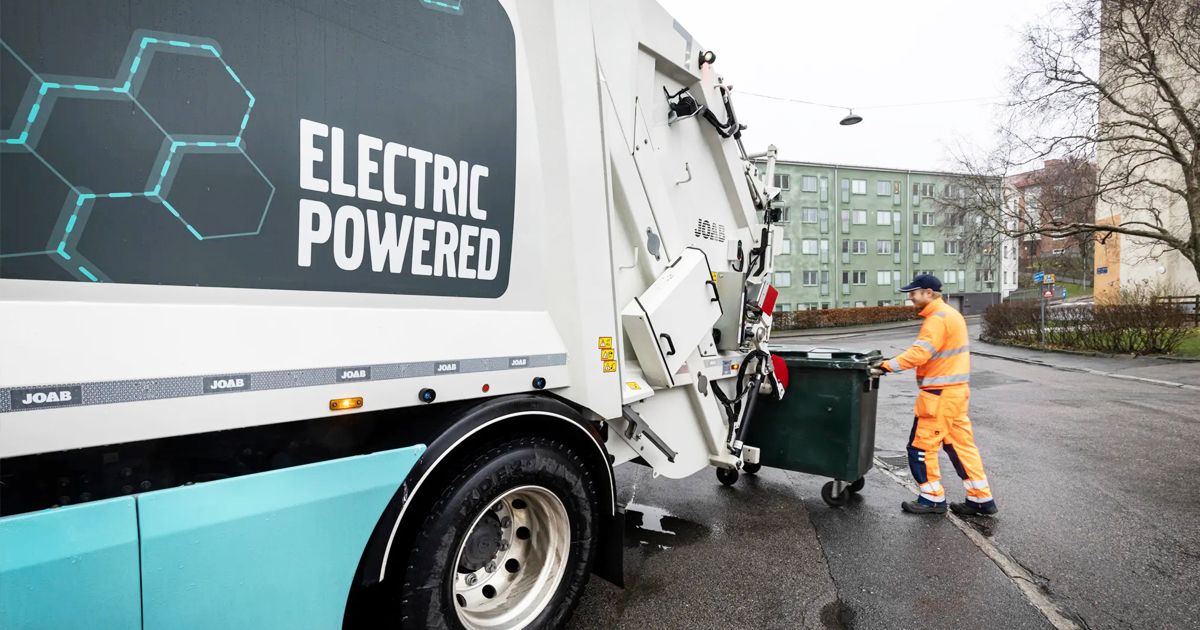Sweden is aiming for zero waste. Let’s see what this means to a family in Stockholm.
Swedish recycling routines
It is early morning, and 31-year-old Daniel Silberstein collects his bike from the storeroom in his block of flats. But not before he has separated out his empty cartons and packaging into the containers in the shared basement.
‘The thing about recycling is that it’s quite mechanical’, he says. ‘It’s basically just this thing you automatically do where you sort your rubbish – just another part of all the consumption we do in our daily lives’, Silberstein says. He lives in a central Stockholm flat with his partner and daughter Charlie.
‘A big part of it is thinking about what kind of environment our daughter is going to have in the future. I am a kid of the 1990s and not recycling is kind of abnormal for us, but for Charlie’s generation it will hopefully go even further. She already thinks it’s fun to push the cartons into the recycling station when I take her.’

Recycling starts in the kitchen for Daniel Silberstein and his daughter.
Photo: Margareta Bloom Sandebäck/imagebank.sweden.se
Everyone must separate their food waste – by law
As of 2024, a new Swedish law declares that everyone must separate their food waste – this goes for households and businesses alike. It’s also manadatory for all of Swedens local authorities to provide separate collection of food waste.
This has already been done for years in many parts of the country, but it hasn’t been regulated by law until now.
Food waste is a great source of energy and is used, among other things, as biogas – to replace fossil fuels.
Beyond recycling
The problem today is that many vital products are hard to dispose of. A new movement is gaining ground that seeks to ensure everything can be reused somehow.
Circular economy is an approach that involves using products that can be reused completely, a so-called cradle-to-cradle approach. In 2018 the Swedish government even established a special advisory group for circular economy, Delegationen för cirkulär ekonomi (link in Swedish), to help make circular economy a key part of government policy.
Changing Swedish recycling behaviour
At the forefront of this movement is a startup that sprang out of Stockholm’s buzzing design scene. Beteendelabbet (link in Swedish), Swedish for ‘the behaviour lab’, tries to find innovative solutions to sustainable living. Building on Sweden’s industrial design heritage and recruiting from Stockholm’s renowned design schools, the company has its sights set on transforming how Swedes live.
Ida Lemoine is the founder of Beteendelabbet: ‘We think people need services that make it easy to do the right thing’, she says. ‘We need to make it possible for ourselves as consumers to share and reuse all kinds of gadgets, clothes and furniture, and even our workspaces and homes.’

